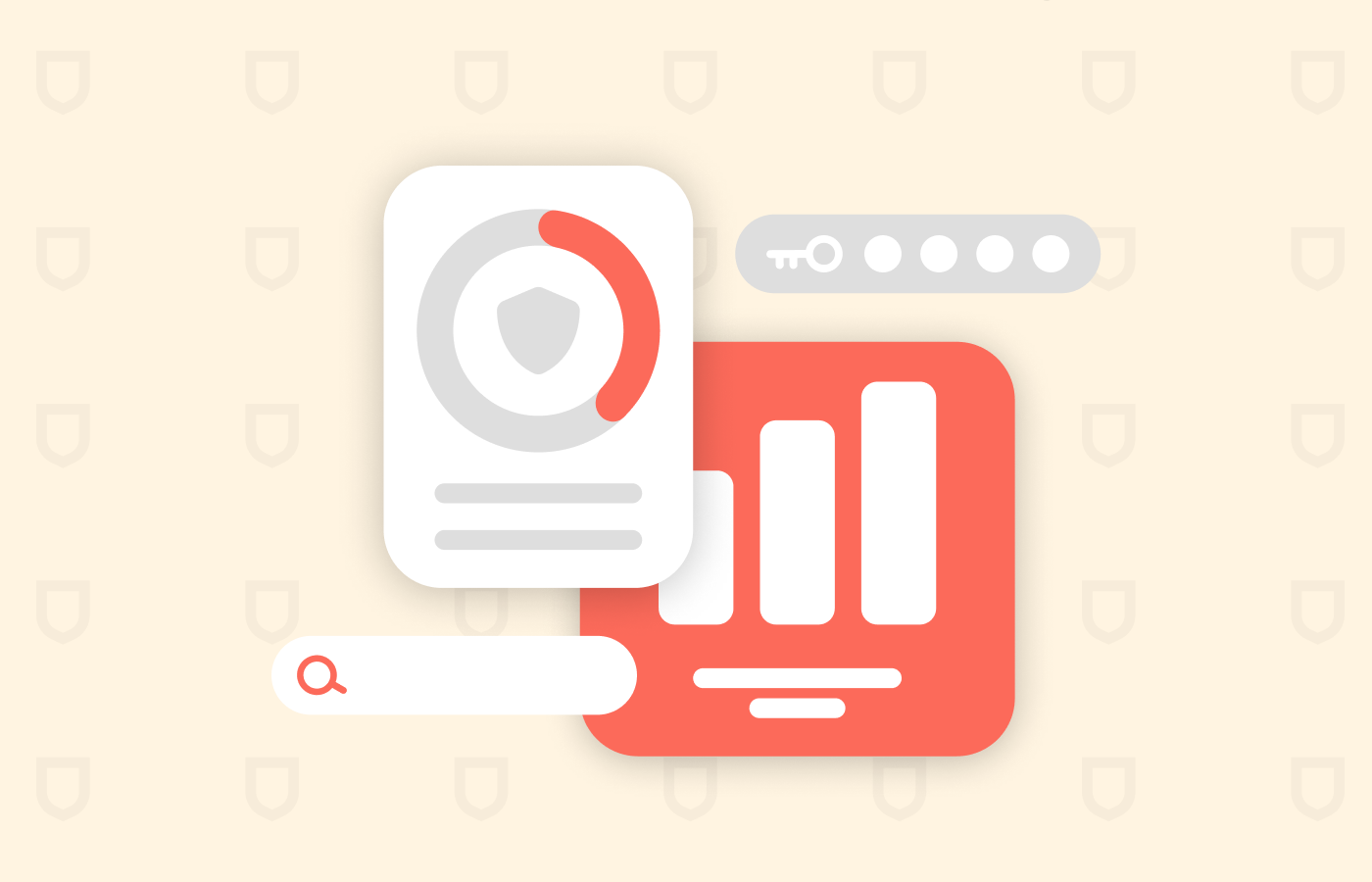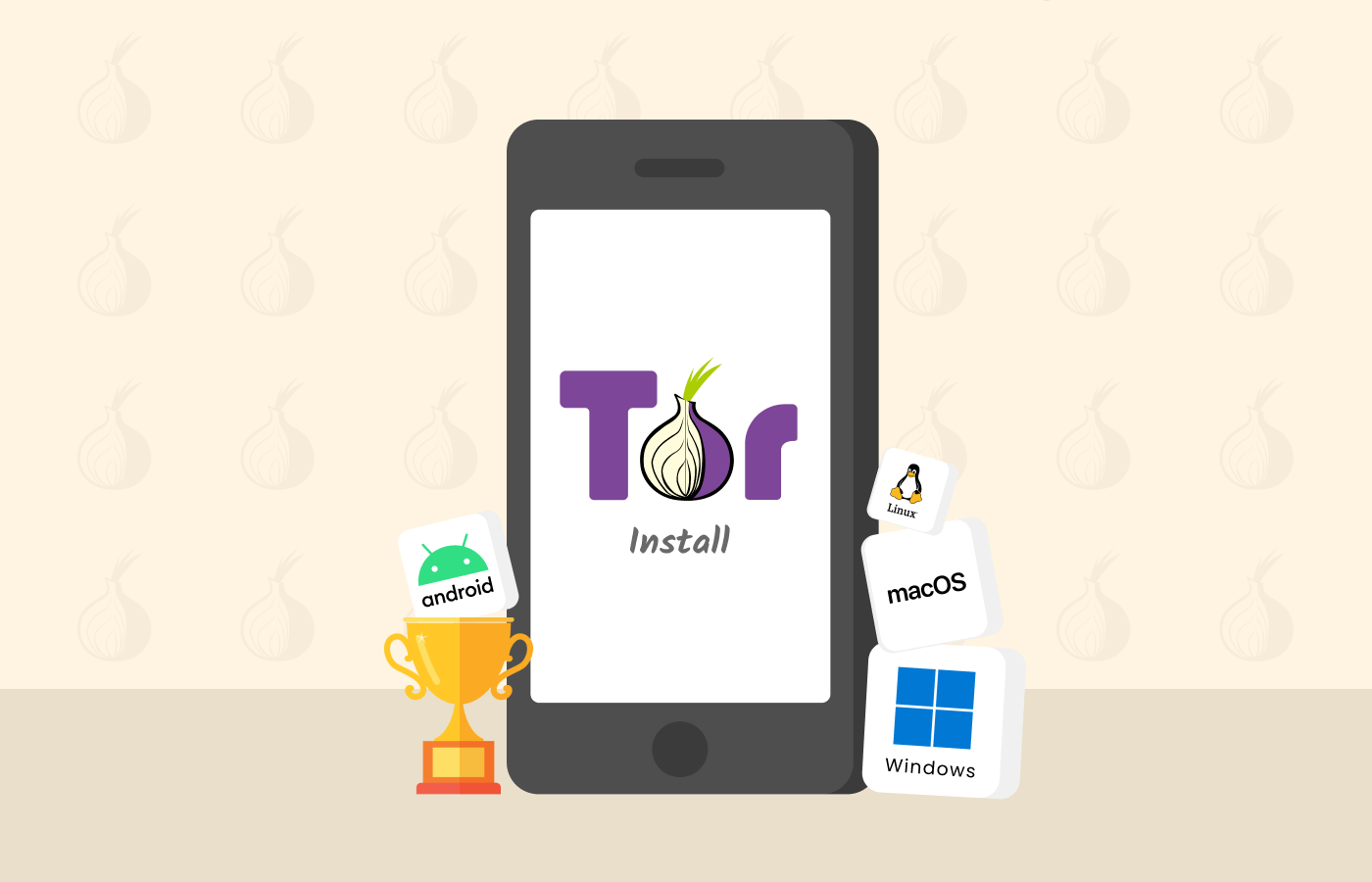PrimeWire is a free online streaming service that allows you to watch movies and TV shows online for free. The site provides free access to your favorite movies and TV shows. However, due to the illegal distribution of content, the service is illegal in many regions.
After testing several, we curated a list of the top PrimeWire substitutes. However, the case applies to all online free streaming services, not just PrimeWire. Therefore, we only recommend to use legal PrimeWire alternatives to watch content for free. We have listed some top free options if you still want to use free services.
Disclaimer: The content in this article is meant for entertainment and informational purposes. It does not constitute legal advice, so it should not be construed in that way. Every domestic jurisdiction has its very own legislation, which can change at any moment. Therefore, you should comply with your domestic laws. IF you doubt the legality of digital activity, you must seek the advice of an expert conversant with the local legal framework. PrivacySavvy does not provide any legal advice.
10 best PrimeWire alternatives in 2025 – Quick list
- Netflix: The most famous OTT platform for watching movies and TV shows online from a anywhere.
- Amazon Video: Another worthy premium service to consider for watching your favorite movies and TV shows online.
- Disney+: Favorite of many, the service has several original programs and more for streaming enthusiasts.
- Max: The platform is famous for its outclass original TV series like Game of Thrones and more.
- Hulu: Hulu: With plenty of live TV channels and original programs, the platform aims to provide high-quality streaming.
- YouTube TV: A convenient option for those who are looking for premium content in premium quality.
- Sling TV: An affordable paid streaming service that offers a large collection of popular movies and shows.
- Popcornflix: A popular free streaming site that boasts an extensive library of TV shows and movies.
- 123Movies: One of the best PrimeWire alternatives with tons of shows and movies for free.
- Putlocker: Another free site like PrimeWire that allows you to watch free movies online.
Best legal PrimeWire alternatives
1. Netflix: The all-around option
Netflix is an excellent alternative to PrimeWire and undoubtedly the best-known video streaming platform, having thousands if movies and TV shows.
This streaming video market leader keeps releasing new titles. You can use it from any device, and the recommendations system will feed you the content you will likely enjoy.
The problem with Netflix is that enjoying its advantages requires being based in the US. Fortunately, a top-notch VPN can bypass Netflix geolocation restrictions and allows you to access your favorite content library anywhere.
2. Amazon Prime Video: The best video streaming service you already have and don’t use
It isn’t the best video streaming service in the market. But it has so many advantages that it’s a good option nevertheless.
First, if you are a frequent Amazon user, you probably already have a Prime subscription to get better shipping deals and other perks. One of the perks you have and haven’t noticed yet is access to Amazon Prime Video.
The price is similar to Netflix, but you get a lot more from your subscription as an Amazon user.
The catalog is not as vast as on Netflix but has plenty of exciting TV shows and movies to enjoy.
3. Disney+: The family entertainment giant
Disney+ is not a site with a catholic catalog. Instead, it features Disney material, including traditional Disney titles, Pixar, Marvel, and Star Wars movies and TV series.
Having a lot of Disney content available poses obvious advantages for families with younger members. Another pro is that you can access this platform on many different devices.
4. HBO Max: The home of the Home Box Office
HBO has tried several ventures into the video streaming business over the years. While HBO Now and HBO Go were proprietary platforms, others featured HBO content in partnership with the cable giant.
HBO Max is the company’s latest effort to bring all its content (like the UEFA Champions League Football and the complete Warner Brothers catalog, including Friends) under a single umbrella.
If you enjoy HBO classics like The Sopranos, Rome, or Game of Thrones, you will surely enjoy this platform. Plus, the additional content from Warner Bros. and other providers provides high-quality entertainment. As a result, this is probably the best PrimeWire alternative.
Of course, HBO Max is only available in a handful of countries. So, once more, your VPN will be your friend here.
5. Hulu: The option for those who want to cut their cables off
Hulu is one of the best options to consider for on-demand streaming. It aims to give you the entire cable TV experience on any device. Live streaming TV offers more than 60 channels, including news, sports, and entertainment. If live TV is not your thing (we hate ads, too), it also has plenty of on-demand videos.
6. YouTube TV: Bring your DVR with you wherever you go
YouTube is the only name bigger than Netflix on this list. Its subsidiary, “YouTube TV,” streams live TV to its users, including many live channels focused on genres like news and entertainment.
Perhaps the most distinctive feature of YouTube TV is the DVR storage service it includes. It’s unlimited, and you can instantly see your saved content from any device.
The problem with this option is the price: it’s about ten times more expensive than any other option. So unless the content and the service are very well suited to your needs, you should probably pick another option.
7. Sling TV: Live TV streaming on a budget
Sling TV is a live video streaming, like YouTube TV, but at less than half the cost.
It is a good option if you want something that lets you eliminate your cable subscription. This service gives you a good balance between price and live TV content.
Free alternatives to PrimeWire
PrimeWire includes plenty of features that are of concern. Malware, viruses, too many adult ads, and other risks are not what you would want from your sources of entertainment.
Fortunately, there are other free streaming options that, while still illegal, do not pose so many concurrent risks to their users. And most of them offer as much content as PrimeWire. So, you’ll do yourself a favor by trying one of the following sites before pointing your browser to PrimeWire.
But before moving forward, remember: you should still use a good antivirus and a VPN with the following sites.
1. Popcornflix
It’s been around for eleven years and is one of the best alternatives to PrimeWire; you can see it from many devices, including gaming consoles.
Popcornflix’s catalog is as vast as PrimeWire regarding shows and movies, so you will not likely miss anything.
There is a con, of course. You’ll need to bear with many ads each time you sit down to watch a new title. But it’s still a better experience than PrimeWire. Also, like many other similar sites, it keeps going down from time to time — but there exist quality Popcorn Time alternatives that you can use in such cases.
2. 123Movies
When most streaming websites dropped, many users arrived at 123Movies to see their movies instead of PrimeWire.
The site’s design is contemporary and well done, the catalog is impressive, and the media player support is far beyond what most other websites can manage, including PrimeWire.
While this site has ads, the team behind it is transparent about them. So, you don’t need to fear losing your identity or control over your gadgets because of them.
3. PutLocker
Putlocker looks outdated compared to most other websites of its kind. But appearances can deceive you. So, it’s a good site with a lot of fresh and free content that balances the newest stuff with classic tiles.
This website will even allow you to find a few rarities. Since it has an international bend, you can enjoy the content usually overlooked elsewhere.
4. SolarMovie
The SolarMovie team is committed to high quality in its content. So, while its catalog is good, its functionality and video resolution are above the average. Where PrimeWire gives you camera videos, SolarMovie offers Blu-Ray quality.
5. Vumoo
This one is not as friendly as the other websites in this section. However, Vumoo has a search engine that will make your life easier.
6. YesMovies
YesMovies adds value to its website by providing access to new releases, shows, and documentaries. So that makes it very similar to PrimeWire, except that it doesn’t have many ads.
7. Niter
The Niter team sympathizes with you. They know you don’t have time to waste, whereas the whole point of this kind of website is to have a good time, not become an expert user. Consequently, it makes everything easy for you. Just pick a poster, click on it, and press play. Done!
A quick guide on how to access PrimeWire safely
If the platform is unavailable in your country, here’s how to safely access it:
- Get a premium VPN provider, such as NordVPN. Also, it is wise to have a reliable antivirus.
- Install the VPN app on your device.
- Login to your account and choose the closest server to your location for a faster connection.
- Open your browser, search for your most preferred PrimeWire mirror website, and begin using it!
What is PrimeWire, and how does it work?
PrimeWire is a popular free on-demand streaming platform with thousands of free movies and TV shows. If you’re already familiar with web pages such as Putlocker or Popcorn Time, you know what we mean. The website has many aliases, including 1Channel and LetMeWatch, but the current “official” name (if it has one) is PrimeWire.
There are some disadvantages for its users. The website works with popup ads that can promote anything malicious. So, you may end up downloading malware by clicking the wrong link. Besides, using this website could have legal and security implications for you. This article explores them in detail.
Is PrimeWire a legal website to use?
The ugly truth about this platform is that it is a website devoted to piracy, just like 123movies or Putlocker. This website streams content to your device; you do not download a file or a copy of the movie or show in question.
Unfortunately, this simple fact makes users deem it legal as they do not consider free movie streaming a problem from the intellectual property point of view. This spurious impression is that no content remains on your device once you watch.
Alas, this is not the case. Downloading and streaming videos are forms of piracy because the creators remain without compensation for their work. Hence, if you live in a jurisdiction where piracy is illegal (and yes, there are a handful of countries in which it’s not), you’re breaking the law by watching content from this site.
The site doesn’t stream any content to users directly. Instead, it’s a hub of links that will take a user to other locations on the web from which the video streams. But none of those streamers are any more legitimate. Unfortunately, that means you are liable to prosecution for breaching copyright laws.
Prospective legal complications
Most of the world’s governments consider that they have much more important things to do with their resources than to punish their citizens for getting free music, TV shows, or watching movies online for free. However, some take this task seriously, pursue it, and punish it. Take Germany, for instance. Fines can be thousands of Euros or even five years in jail. Granted, the worst penalties rarely apply for watching videos online anywhere globally, but why risk it?
Now, let’s see what some other countries hold on to piracy. We start with Switzerland, Spain, and Poland. These countries do not consider piracy a crime. So, anything you download for free is legitimate if you keep it for your personal use and do not try to make it profitable. In contrast, countries like the US, South Africa, Portugal, Finland, Latvia, Russia, Italy, the UK, Japan, Germany, France, and China deem piracy illegal and pursue it aggressively.
Finally, the middle of the road position includes other countries like Uruguay, Slovakia, Slovenia, Singapore, the Netherlands, the Philippines, Romania, Mexico, Greece, Canada, Israel, Iran, India, Egypt, the Czech Republic, Denmark, Argentina, Colombia, and Brazil. They have strict legislation against piracy but don’t enforce those laws aggressively.
And don’t allow the streaming vs. downloading argument to deceive you. Streaming is downloading. As you stream, you download the content in real-time while watching it. By the end, the download vanishes into the digital ether, and you don’t end up with a copy of the video in question. And it’s still a download–an illegal download that can get you in legal trouble in the wrong jurisdictions.
Is PrimeWire secure? How can I watch it safely?
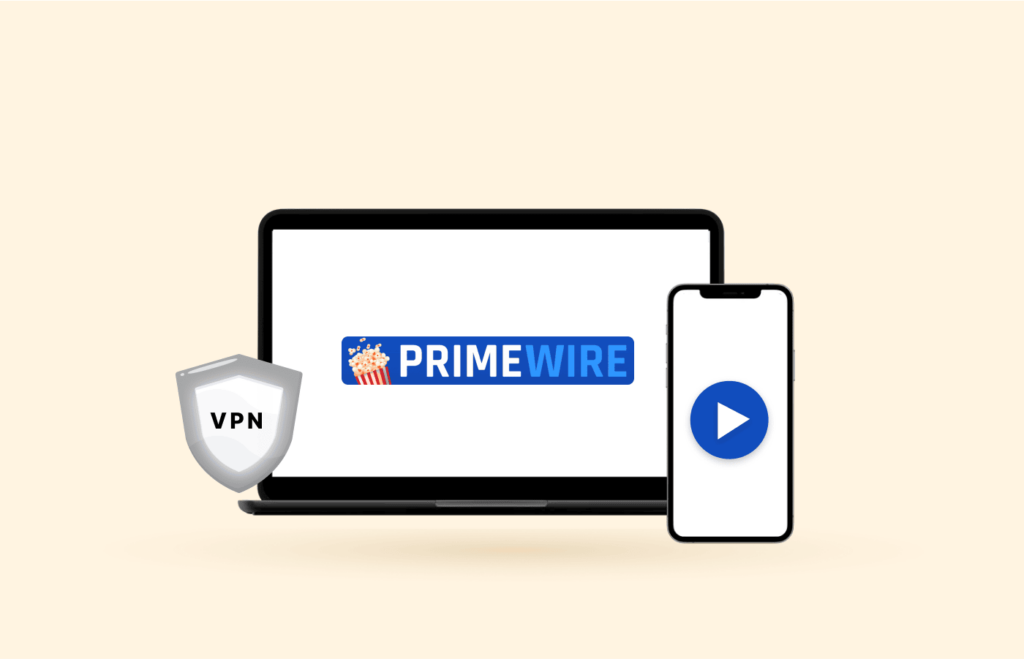
Is it safe to use PrimeWire in the territories we discussed above? You might ask. And the answer is no; it’s not. The environmental factors ensure that you will not be prosecuted, jailed, or fined. But security is a different thing altogether.
The most likely security threat you’ll have as a PrimeWire user has nothing to do with your government (hopefully). Instead, you expose yourself to viruses and other malware that may download on your device via malicious links or ads.
Also, remember that your video won’t stream from PrimeWire but from a partner’s website that is not precisely legitimate. Many other websites provide a streaming component for their users, and plenty of those are known to spread harmful software. That’s the risk you face in this network of free streaming sites like PrimeWire.
If you must use PrimeWire, consider using a good antivirus suite to protect your equipment from digital threats. For instance, BitDefender is a good option.
We suggest the one digital tool for you in PrimeWire is a premium Virtual Private Network (VPN). The best VPN services will also block malware and virii from downloading into your operating system, encrypt your traffic, hide your IP, and make it impossible for any external observer to figure out what you’re doing. We find that the best VPN you can use for video streaming (and any other task) is ExpressVPN. It’s a user-friendly VPN with impressive security features, fast speeds, and a relatively low price in the premium VPN market.
The mirrors
There is a recurrent story that keeps happening to websites like PrimeWire. As they come online and become famous, two things happen. First, they attract negative attention from law enforcement, and second, many imitators emerge online, putting forward website mirrors. Eventually, the original site goes offline because of legal problems, leaving behind the mirrors only.
So, indeed, PrimeWire is no longer online, and the websites you can use instead (and under the same name) mirror the original project.
The problem with mirrors is that they’re not exact copies. Instead, these websites reproduce the most useful bits of the original website and almost always add something. Most frequently, the extra stuff is malicious advertising and other means to spread malware and code that could allow a third party to track your activity and identify you well enough to steal your identity.
Thus, whatever the legal status PrimeWire has in your country remains risky. Therefore, the best preventive measure to use this website (or its mirrors) is through a VPN.
Using PrimeWire safely
If using PrimeWire in your country is legal, you should still start by protecting your computer or device against digital threats. However, remember that being safe from legal liabilities doesn’t ensure your safety against cyber criminals, and you should act accordingly.
Here is how you can have a smooth streaming experience that will still keep you safe:
- Choose a premium VPN service such as ExpressVPN or NordVPN. Also, having an excellent antivirus suite (Kaspersky is the way to go).
- Download and install your VPN app into the device you intend to use with this site.
- Launch your VPN app, log in, and pick a server near you.
- Make sure your antivirus is actively running.
- Point your browser to your favorite PrimeWire mirror and start using it.
We strongly suggest that you avoid PrimeWire if you live in a country where it’s illegal.
Criteria for selecting the best PrimeWire VPN
A VPN is a vital tool regardless of the streaming platform. Whether using a popular premium platform like Netflix or a free platform like PrimeWire, it protects your privacy and keeps you safe.
However, today’s market is flooded with many VPN products offering the best security, privacy, and unblocking services. So, how do you choose the best PrimewireVPN?
A reliable PrimeWire VPN must meet specific criteria. Firstly, the service must have excellent unblocking capabilities – this is important when you want to circumvent geographical restrictions and censorship to access your favorite content.
Most free movie streaming platforms are frequently targeted by malware infections and annoying ads, which can result in a poor streaming experience. You should, therefore, subscribe to a VPN with a robust ad and malware blocker.
Additionally, a VPN’s network size can significantly affect your streaming experience. So, choose a VPN with a large server network to get servers near you to improve your streaming speeds. Also, many servers reduce the overall load and improve performance across the network.
Best PrimeWire VPN to enjoy safe streaming
Below are the VPNs that we tested with PrimeWire, and each VPN follows the criteria we discussed above:
1. NordVPN
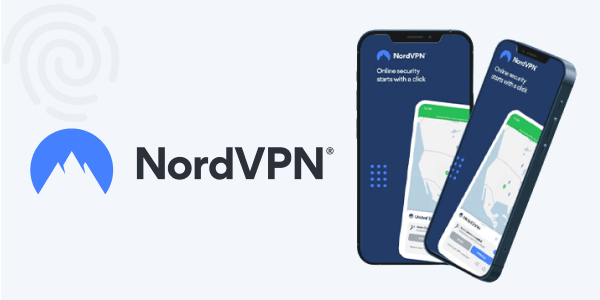
Key features
- Customizable Kill switch
- Up to 10 simultaneous connections
- 6,800+ servers in 113 countries
- Has P2P optimized servers
- Double encryption mode
- Tor compatibility
- Double VPN feature
- 30 days money-back guarantee
NordVPN is registered in Panama and has over 6,800 servers in over 113 countries. Besides being registered in a country with friendly privacy laws, the VPN enforces a strict no-logs policy, ensuring your online activities cannot be traced back to you. The VPN uses a spinoff of Wireguard called Nordlynx, OpenVPN, and IKEv2/IPSec protocols to transmit data in the tunnel. Also, it has powerful abilities to unblock streaming platforms, including PrimeWire.
This VPN guarantees privacy and security with AES-256-GCM encryption with SHA2-384 authentication and 2048-bit Diffie-Hellman (DH) keys. It has applications for all major devices and operating systems and has a 30-day money-back policy. Additionally, NordVPN offers WebRTC, DNS, and IP leak protection and a robust, customizable kill switch that disconnects your device from the internet if your VPN connection drops.
Pros:
- Huge server coverage
- Allows P2P sharing
- Fast speeds across all servers
Cons:
- Desktop applications may be tricky to use for some users
2. Private Internet Access (PIA)
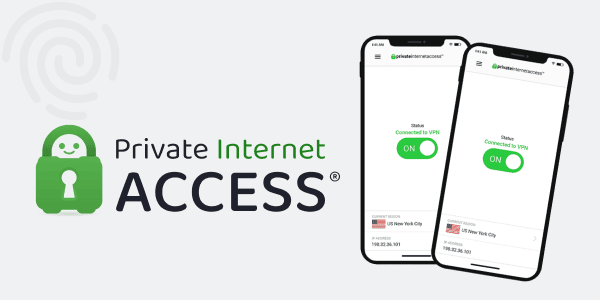
Key features
- Split Tunneling feature
- Fully supports P2P
- No-logs policy
- Automatic Kill switch
- Unlimited number of devices simultaneous connections
- 30-day money-back guarantee
Private Internet Access (PIA) is an excellent value for the money with its customizable security options, strong torrenting performance, and excellent streaming abilities. The provider has a massive server network of over 35,000 servers worldwide. This means you can find a server near you to reduce latency and get better speeds. PIA has a good reputation for unblocking popular streaming platforms like PrimeWire and Netflix.
The VPN protects your privacy and security using AES-256 Encryption, DNS/IPv6 leak protection, OpenVPN protocol, and IP masking. It also maintains a strict no-logs policy and has applications for all major platforms and devices. PIA provides unlimited simultaneous connections and offers a 30-day money-back guarantee to test it risk-free.
Pros:
- Dedicated apps for prominent platforms
- Good Value for money
- Effective ad and malware blocker
Cons:
- Inconsistent speed
3. ExpressVPN

Key features
- Effective split tunneling
- 3000+ servers in 105+ countries
- Supports P2P connections
- Solid AES-256 encryption
- 30 days money back guarantee
- DNS/IPv6 leak protection
ExpressVPN is a popular VPN with unique features, a large server network, and user-friendly applications for all platforms. It has over 3000 servers across 105 countries, which are optimized for streaming. The VPN has advanced features to secure user data and unblock streaming platforms and censorships.
It uses military-grade encryption technology that relies on AES 256-bit encryption and SHA-512 HMAC authentication, ensuring no one can intercept your connection. The VPN also offers OpenVPN, IKEv2, and its Lightway protocol, providing fast speed, robust security, less power consumption, and sustainable connectivity. Moreover, it supports P2P activities in all its servers and maintains reliable and consistent speeds.
The VPN comes with an excellent automatic kill switch called ‘Network Lock,’ which disconnects your device from the internet if your VPN connection drops. ExpressVPN has a strict no-logs policy and protects you from IP, DNS, and WRTC leaks. Additionally, it provides a 30-day money-back guarantee, which means you get a refund if you are dissatisfied with the service.
Pros:
- Advanced privacy and security features
- Allows P2P traffic
- Fast speeds across all servers
Cons:
- It is more expensive compared to other VPNs
4. Surfshark

Key features:
- Multihop mode
- AES-256 Encryption
- 30-Days money back guarantee
- Unique camouflage mode
- CleanWeb feature
- Unlimited simultaneous connections
- 3200 servers in 100 countries
This is a budget-friendly VPN with over 3200 servers in 100 different countries. The VPN protects your privacy and security by encrypting your data using the AES-256-bit algorithm and shields you against DNS/IPv6 leaks. Surfshark unblocks all major streaming platforms and has decent connection speeds.
This service has a CleanWeb feature that blocks trackers, malware, and ads to ensure smooth streaming. Also, it comes with an excellent kill switch that keeps your data safe even after a VPN connection drops. Surfshark has a camouflage mode that hides your VPN activities and a no-borders mode that detects heavily censored regions to allocate you special servers.
Additionally, the VPN supports a wide range of devices, including applications for Android and iOS users. The VPN supports unlimited simultaneous connection and has a 30-day money-back guarantee, and you can try it without risk.
Pros:
- It is budget-friendly.
- It unblocks all major streaming platforms.
- Allows unlimited multiple device connections.
Cons:
- It may be slow when connecting to servers far away.
FAQs
PrimeWire distributes unlicensed content. It is banned in several countries due to copyright infringement. When banned, the government forces internet service providers in the country to block the website so that no one can access it. This leads to the development of mirror versions, which are even less secure.
Free streaming platforms have many risks; sometimes, they can redirect you to malicious websites. The platforms also have many pop-up ads; you can unintentionally click those containing viruses.
Websites that don’t require personal details are great because you can quickly start streaming. Examples include Popcornflix, GoStream, Crackle, YouTube, SolarMovie, etc.
Check your local laws to understand whether there are consequences for consuming PrimeWire content. It is recommended to stream only what is in the public domain.
Using a quality VPN when visiting PrimeWire and its alternatives is recommended to protect your privacy. A VPN encrypts your connection and masks your identity, allowing you to stream freely without fear that someone is monitoring or tracking your activities.
PrimeWire gets commissions from VPN referral schemes, and the ads users open intentionally or unintentionally.
